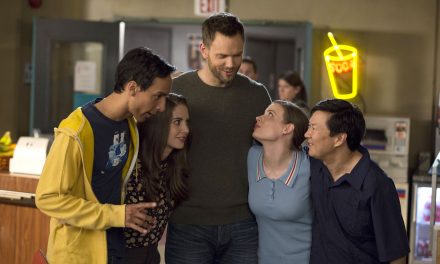Many of us are personally familiar with the healing power of animals. Whether we’re talking about seizure-predicting dogs or the healing power of a cat’s purr, the simple companionship of having an animal friend can make a big impact on our lives. And it’s not just domesticated animals either, as you can see in the new documentary Wildcat.
Wildcat takes viewers into the Peruvian rainforest, where one Samantha Zwicker began Hoja Nueva (“New Leaf”). The organization focuses on rescuing and rehabilitating at-risk wildlife, such as animals displaced by logging, injured by poaching, or taken from their forest homes for illegal trade. After rehabilitation, the animals are reintroduced to the Peruvian Amazon to preserve local ecosystems. The documentary follows this process – known as “rewilding” – for a specific wildcat, an ocelot called Keanu.
Joining Zwicker in Keanu’s rehabilitation quest is Harry Turner. After enlisting in the military at 18, Turner came home from Afghanistan with PTSD and severe depression. Escaping into the Peruvian wilderness, he ultimately met up with Zwicker and became Keanu’s main point of human contact. (After Keanu reached a certain age, Zwicker and others tried never to interact with the wildcat; minimizing his exposure to humans was a crucial part of the rewilding process.)

As filmmakers Trevor Frost and Melissa Lesh showcase Keanu’s growth from rescued kitten to full-grown wildcat, a narrative beyond rewilding takes shape. Turner, plagued by his own inner demons, finds purpose in parenting Keanu. The love he has for the wildcat is obvious; but as so many of us who have dealt with mental illness know, the love we receive isn’t always enough to save us.
As Turner gives raising Keanu his all, he still finds himself struggling more and more with self-harm and suicidal thoughts – especially as the time to release Keanu draws nearer. In one particularly heartbreaking scene, Turner breaks down, saying there’s something wrong with him: despite his love for Keanu, his relationship with Zwicker, his environment in the beautiful Peruvian rainforest, he doesn’t feel happy. He has everything he could ask for, he says, and it’s still not enough to make him feel okay.

Watching Turner’s struggles play out on screen next to the challenges of raising and rewilding Keanu makes for a deeply emotional story, and one that’s easy to connect to. But because Wildcat specifically chooses to chronicle the relationship between Turner and Keanu, other aspects fall to the wayside. At times, the focus seems too narrow, missing out on the nuance of the broader picture. In particular, this loss is felt in the actual conservation and environmentalism angle.
While the documentary does provide some background about Zwicker and Hoja Nueva, it’s mostly to contextualize Turner’s work with Keanu. That seems to leave a lot of impactful story on the cutting room floor, and relegates Zwicker to more of a background role than feels entirely justified. What challenges did Zwicker face when launching Hoja Nueva? How did she choose this specific location in Peru? What made her want to rehabilitate carnivores specifically, when no one else was doing it? How does she work with the locals, the Peruvian government, other conservation organizations? How is her research being used? We only get to scratch the surface of these questions, because – despite catalyzing the relationship between Turner and Keanu – Zwicker’s Hoja Nueva journey isn’t what we’re following here.

I don’t mean to say that Turner’s story isn’t worth telling. It’s undeniably heart wrenching and human. You’ll feel invested in his health and wellbeing as much as Keanu’s – no doubt what the filmmakers intended. But for a film that’s about rewilding, well…I would have liked the environmental angle to come through a bit stronger.

Wildcat is in select theaters now. It premieres on Prime Video December 30.
You can also learn more about Hoja Nueva and Zwicker’s ongoing rewilding efforts and conservation work at hojanueva.org.

![Wildcat: A Heart-wrenchingly Human Wildlife Documentary [Review]](https://www.thathashtagshow.com/wp-content/uploads/2022/12/wildcat-review-1200x640.png)


